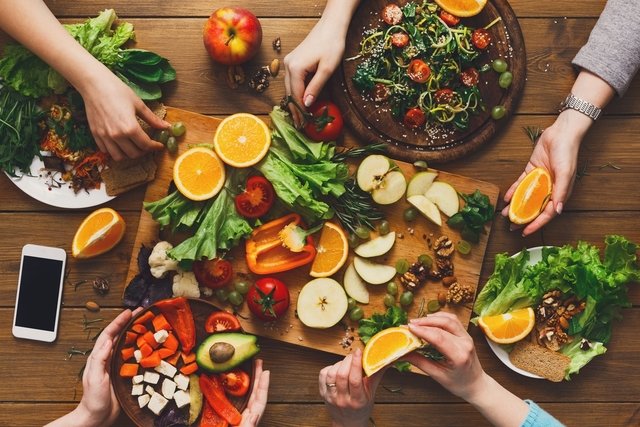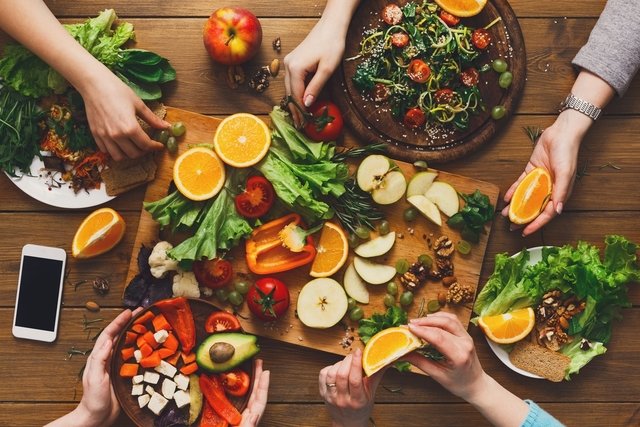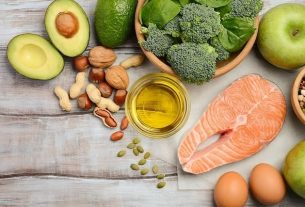The ketogenic diet has been studied as a possible tool to help treat some types of cancer, as this type of diet reduces insulin and glucose levels in the blood, which are important for the evolution of tumors.
This type of diet is restricted in carbohydrates, which are present in foods such as rice, beans, fruits and vegetables. Additionally, the ketogenic diet is rich in fats, such as olive oil and butter, and provides adequate amounts of proteins, such as meat, chicken, and eggs. Learn more about the ketogenic diet.
However, there are still few studies that prove the effectiveness of the ketogenic diet in helping to treat cancer, because despite the low intake of carbohydrates, the body still produces and supplies glucose to cancer cells. Furthermore, the diet can also cause loss of muscle mass, thus worsening the response to treatments and the condition of the disease.

How diet could help fight cancer
When following a ketogenic diet, blood glucose levels are greatly reduced, and this is the only fuel that cancer cells can use to grow and multiply. Thus, the ketogenic diet can leave cells without energy, which can slow tumor growth.
Furthermore, low carbohydrate content also reduces levels of the hormone insulin in the blood, reducing the proliferation of tumor cells.
However, it is important to remember that the ketogenic diet also does not replace conventional treatments, such as chemotherapy, immunotherapy, radiotherapy or hormone therapy.
Ketogenic diet precautions and contraindications
As it is a restrictive diet, the ketogenic diet can cause loss of weight and muscle mass, making it difficult for the body to respond to chemotherapy or radiotherapy treatments and worsening the person’s health status.
Furthermore, the ketogenic diet can facilitate the emergence of possible side effects, such as dizziness, constipation, cramps, diarrhea, headache and weakness.
It is important to highlight that studies on the safety and effectiveness of the ketogenic diet as an aid in cancer treatment are still inconclusive, whether due to a low number of participants, the short evaluation time or the lack of control over the diet of the people who participated. of studies.
Diet tips for cancer cases
In addition to the ketogenic diet, adopting some healthy eating habits helps to strengthen the immune system, prevent the loss of muscle mass and maintain general well-being, helping with the success of the treatment. Therefore, some important feeding tips are:
- Drink plenty of water: drinking 30 ml/kg to 35 ml/kg of body weight of water per day helps keep the body hydrated, helping the effectiveness of medications and reducing the side effects of treatments;
- Maintain a balanced diet: Prioritizing healthy foods, such as fresh fruits and vegetables, whole grains, legumes and healthy fats that have antioxidant and anti-inflammatory properties, helps prevent constipation and strengthens the immune system. See a list of anti-inflammatory foods;
- Avoid foods with high fat content: foods such as margarine, fatty cheeses, fast food and fried foods contribute to an increase in body fat, promoting inflammation;
- Avoid excessive sugar consumption: ice cream, cakes, cookies, soft drinks should be avoided, as sugar is the main source of energy for cancer cells;
- Avoid embedded foods: sausages, sausages and salami contain nitrites, additives that cause damage to the body’s healthy cells.
Furthermore, it is recommended to practice moderate physical exercise regularly to help reduce the percentage of body fat, avoiding inflammatory processes and improving recovery after surgery and chemotherapy or radiotherapy treatments.
Before starting any type of diet, it is essential to have the consent and supervision of a doctor, as the amount of calories and nutrients in the diet, and body weight can directly interfere with the response to treatment.
See nutritionist Tatiana Zanin for some nutritional suggestions to alleviate the side effects of cancer treatments:

Sign up for our newsletter and stay up to date with exclusive news
that can transform your routine!
Warning: Undefined array key "title" in /home/storelat/public_html/wp-content/plugins/link-whisper-premium/templates/frontend/related-posts.php on line 12
Warning: Undefined array key "title_tag" in /home/storelat/public_html/wp-content/plugins/link-whisper-premium/templates/frontend/related-posts.php on line 13




